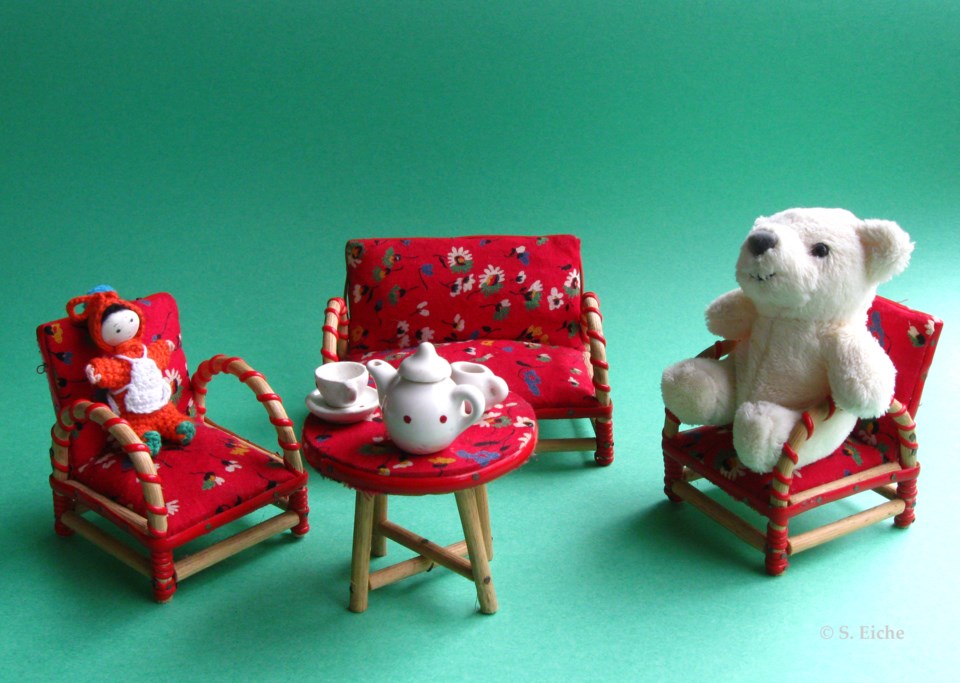I remember the moment in Italy when, in the countryside, I spotted my first wild asparagus. Seconds later I was seeing them everywhere. They seemed to be materializing before my eyes. Such a flash of recognition has occurred with words as well – I read an unfamiliar or unusual word and suddenly it’s popping up all over the place.
Recently, this kind of wave (or bundling) of happenings came my way again. In January the title of a column in The Guardian caught my attention – “Can ‘micro-acts of joy’ make you happier?” In early April, also in The Guardian, I encountered “The vorfreude secret: 30 zero-effort ways to fill your life with joy.” Then, on April 20, a friend emailed me that he was singing the final movement of Beethoven’s Symphony No. 9, adapted from Friedrich Schiller’s Ode to Joy. You all know those words – “Freude, schöner Götterfunken” (Joy, divine spark). A couple of days later, something happened to me that was like the joy of dozens of Christmases rolled into one – more about that in a minute.
The "micro-acts of joy" that Beddington writes about were prompted by a citizen science project at the University of California, Berkeley, called "Big Joy." If you ask me, the suggestions made by the project sound like a quest for happiness, not for joy. Happiness is the sensation of feeling good in a general way, but joy is more like a surge of delight, often preceded by surprise.
Vorfreude, in the title of Dixon’s Guardian article cited above, is a German word translatable as joyful anticipation or anticipatory joy. I believe children experience it more than grown-ups do. Dixon lists various things you can do to invite Vorfreude into your life. If you’ve never experienced that kind of anticipatory joy, she suggests you begin by taking small steps, trying to notice one joyful thing each day. This, I suppose, will make you want to find more joyful things tomorrow.
One of the ways of experiencing Vorfreude, Dixon suggests, is to turn routine into ritual. This works for me. Years ago I had one of those blessings-in-disguise episodes, when my modem suddenly failed and I couldn’t read the online papers with my morning coffee, as had been my routine. The technician couldn’t come for days. I panicked. How could I drink my morning coffee without the internet? It was summer, so I sat on the deck with my coffee, counting the minutes before the library opened and I could access one of their computers. Waiting was hard. But the next day, I actually enjoyed coffee on the deck, without a computer, just listening to the sounds of nature. Since that day in 2018 I’ve missed morning coffee on the deck only once – when the snow had been driven against the deck door and I didn’t dare open it. Now I anticipate that first coffee with joy. It’s a magical time, when the hummingbirds come to the feeder – one of the female Anna’s has accepted me to the point where she’ll hover in front of my face for a few seconds before zipping off into a tree.
Another routine that Vorfreude has turned into a ritual is my morning stroll through the garden. Mostly it’s to check how the plants have fared overnight, but these days I’m also eagerly looking to see if another of my honeywort seeds has poked through the soil, its first two leaves resembling tiny hands folded in prayer. Those seeds have stayed underground for the longest time, so it’s a very special joy to see the force of nature drawing them to the light.
And now, for the joy that felt like dozens of Christmases rolled into one. The other day, in cleaning out a closet underneath the stairs, I found a box at the very back, filled with stuff I couldn’t identify in the semi-darkness. I pulled the box into the light. When I saw the contents my first reaction was surprise, followed immediately by a surge of emotion, a sensation of pure joy. Packed into the box was my dollhouse furniture, which had travelled with me from Germany in 1956. The tiny chairs, tables and cupboards had been crafted with skill, and all but two pieces were in pristine condition, although I’d played with them for years. I can’t remember if they were a Christmas or a birthday present, but I’m sure that my joy at rediscovering them now was as great, if not greater, than the joy I felt when I received them all those decades ago.
Reflecting on my own joys leads me to conclude that the little joys – the rituals of morning coffee on the deck, of the matutinal garden stroll – are the best because they’re the ones that endure. They’re also the most personal ones, and the more precious for that.
Sabine Eiche is a local writer and art historian with a PhD from Princeton University. She is passionately involved in preserving the environment and protecting nature. Her columns deal with a broad range of topics and often include the history (etymology) of words in order to shed extra light on the subject



